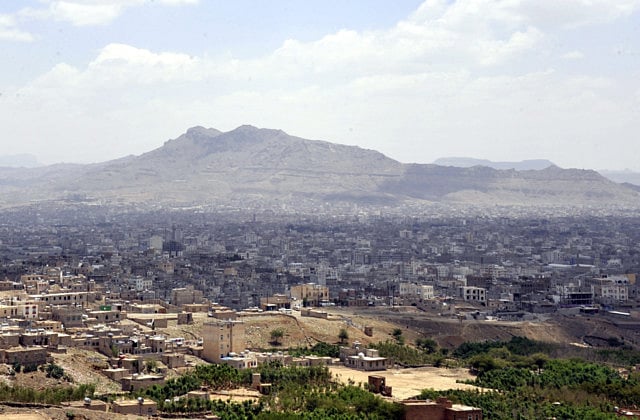Sana’a: Yemen’s president is expected to appoint a new prime minister within 48 hours under a new deal with Al Houthi rebels in return for ending their weeks-long protests, a source close to the presidency said on Thursday.
“An accord was reached... late on Wednesday” to end the country’s latest political impasse, by which “a new prime minister will be named within 48 hours” and fuel prices will be further cut, the source said.
A member of the government’s negotiating team said the agreement was signed by Sanaa’s governor, Abdul Qader Helal, and Al Houthi representative Hussain Al Ozzi, who is in charge of political affairs.
The Defence Ministry’s website said: “A political breakthrough is imminent and there are negotiations to name a new prime minister”.
Mohammad Al Bekheity, a member of the Al Houthi’s politburo was optimistic about the latest deal. “Communications (with the government) are back and God willing, this is the beginning of a breakthrough,” he said.
President Abd Rabbo Mansour Hadi had already promised in an initiative rejected by Al Houthis earlier this month to name a new prime minister.
The rebels had been demanding that Hadi consult them before naming a new prime minister and it was unclear if any agreement had been reached in this respect in the overnight accord.
In return, the rebels have agreed to “dismantle their protest camps and pull their armed men” from Sana’a and its surroundings, the presidency source added.
Al Houthi activists launched their protest campaign in late July after the government announced a hike in fuel prices.
Based on the latest agreement, the fuel prices will see a downward revision of over 50 per cent, following up on a 30 per cent rollback that took effect last week.
The rebels set up their protest camps in Sana’a on August 18 and, earlier this week, they escalated their movement. They clashed with police on Sunday after they closed down the main road leading to Sana’a airport as well as the ministries of electricity and telecommunications.
On Monday, hundreds of protesters tried to storm the government headquarters, sparking clashes with police. Protesters had also prevented government vehicles from entering or leaving the capital. At least nine Al Houthi protesters were killed in the Sana’a clashes that also left a paramedic dead.
The Al Houthis have been battling loyalist forces for months for control of key cities north of Sana’a.
The International Crisis Group warned on Monday that “Yemen’s troubled transition is at a crossroads more dangerous than any since 2011.” Unless an “inclusive settlement” based on Hadi’s initiative is reached, it cautioned, the “alternative is a conflict”.
Yemen has been locked in a protracted transition since long-time president Ali Abdullah Saleh was forced from power in February 2012 after a deadly 11-month uprising.
Analysts say the rebels are trying to establish themselves as the top political force in the northern highlands, where Shiites are the majority.
Sign up for the Daily Briefing
Get the latest news and updates straight to your inbox
Network Links
GN StoreDownload our app
© Al Nisr Publishing LLC 2026. All rights reserved.
